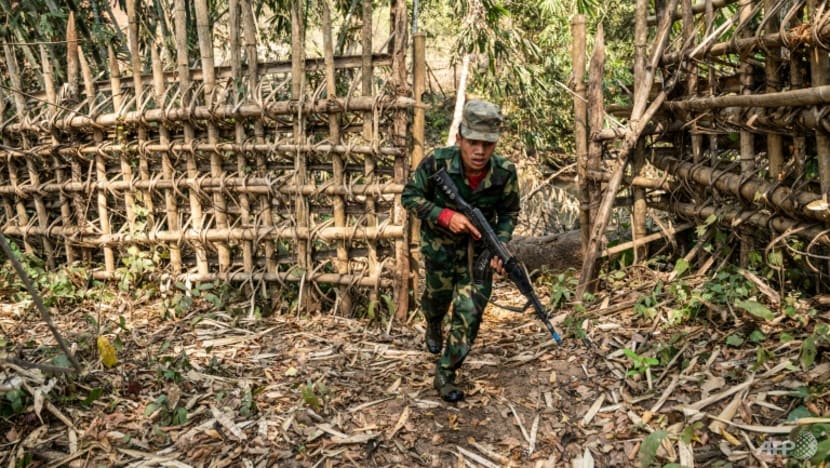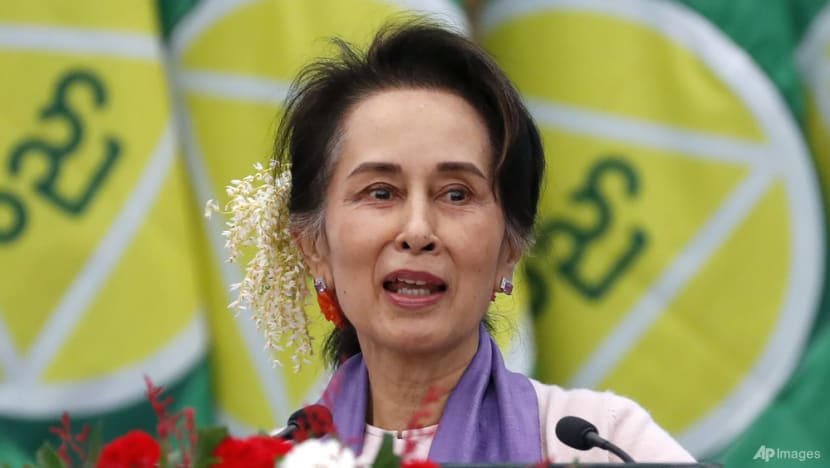Extension of Myanmar’s state of emergency ‘not surprising’, as military junta loses control on the ground
The junta, which seized power in a coup that deposed the civilian government led by Ms Aung San Suu Kyi more than two years ago, had earlier pledged that fresh polls would be held in August.

Myanmar could have its state of emergency extended a few more times until 2025, as the military junta struggles to regain control on the ground, said observers.
The military-controlled government on Monday (Jul 31) prolonged the state of emergency another six months until Jan 31, delaying elections that they had promised to hold.
This comes as conflict continues to break out across the country and the economy grapples with rising inflation.
MILITARY JUNTA LOSING CONTROL
The junta, which seized power in a coup that deposed the civilian government led by Ms Aung San Suu Kyi more than two years ago, had earlier pledged that fresh polls would be held in August.
But the regime will likely wait for the 2020 election results to expire in 2025, said Mr Amara Thiha, a doctoral researcher at the Peace Research Institute Oslo.
“That is to avoid the legitimacy contestation if the election happened earlier,” he told CNA’s Asia Tonight on Monday.
“So I expect the extension every six months until 2025. And I'm not surprised about the extension at all.”
Mr Amara Thiha noted that the pace of election preparations is slow and large swathes of the Southeast Asian country are under the control of resistance forces.
“With this given security context, we are not going to see an election anytime soon,” he added.
Junta chief Min Aung Hlaing has acknowledged that much of the nation is not under full military control, according to state media. He said fighting continued in Sagaing, Magway, Bago and Tanintharyi regions as well as Karen, Kayah and Chin states.
The National Defence and Security Council agreed to prolong the state of emergency that was declared when the generals toppled Ms Aung San Suu Kyi's government.
Myanmar's military-drafted 2008 constitution requires authorities to hold fresh elections within six months of a state of emergency being lifted.
MOVING AUNG SAN SUU KYI TO HOUSE ARREST?
Meanwhile, ousted leader Aung San Suu Kyi has been pardoned on five of the 19 offences for which she was convicted and jailed for a total of 33 years, according to media reports.
The Nobel laureate has also reportedly been moved from a prison to house arrest.
This could be seen as “a strategic move” by the military regime to mitigate the international pressure, said Mr Amara Thiha.
“Of course, the Myanmar military is known to operate on its own terms, timeline and game plan.”
Some observers believe the junta is trying to divert attention away from its troubles, including the losses they have experienced in the last few weeks.

“The only way they can harass the people is these bombing runs against the villages and towns, because that's the only thing left. The military is collapsing and rotting away from the inside,” said Dr Miemie Winn Byrd, professor at the Asia Pacific Center for Security Studies, adding that there is no longer a rule of law.
Dr Byrd added that the military-led government has also mismanaged the economy, including issuing new 20,000 kyat banknotes that could drive it into hyperinflation, and further destabilise the strife-torn country.
“It'll be hard to bring in the investment,” she told CNA’s Asia First on Tuesday. “Since the coup, the economy has been in tailspin.”
FAILURE TO IMPLEMENT ASEAN’S FIVE-POINT CONSENSUS
Neighbouring countries have been trying to de-escalate the crisis, amid discontent within the Association of Southeast Asian Nations (ASEAN) bloc over the military regime’s prolonged failure to implement the Five-Point Consensus to end hostilities.
The peace plan was agreed between the junta and the regional group in April last year.
The latest extension of Myanmar’s state of emergency “has hurt ASEAN’s credibility”, said Dr Byrd.
Instead of putting an immediate end to violence in the country, as agreed upon, the junta has “been the instigator of violence”, she added.
“People feel like they have the responsibility to protect the communities because of the military's brutal crackdown.”
Dr Byrd urged ASEAN to not buy into the junta’s propaganda that it is the one holding the country together, and instead engage with all stakeholders to come up with a solution.
“In fact, they have been the divider. Prior to the coup, there was no problem with the stability within the country,” she noted.
“Now, we have instability. And that instability not only within Myanmar, but it has also flowed into the neighbouring countries.”
But even as the Myanmar conflict drags on, “that doesn’t mean that the ASEAN Five-Point Consensus is not working”, suggested Mr Amara Thiha, adding that its immediate neighbours can step up and stop the crisis from deepening.
“It should be the guiding process. But the primary goal should be de-escalation and finding a pragmatic solution to end the crisis in Myanmar.”
















